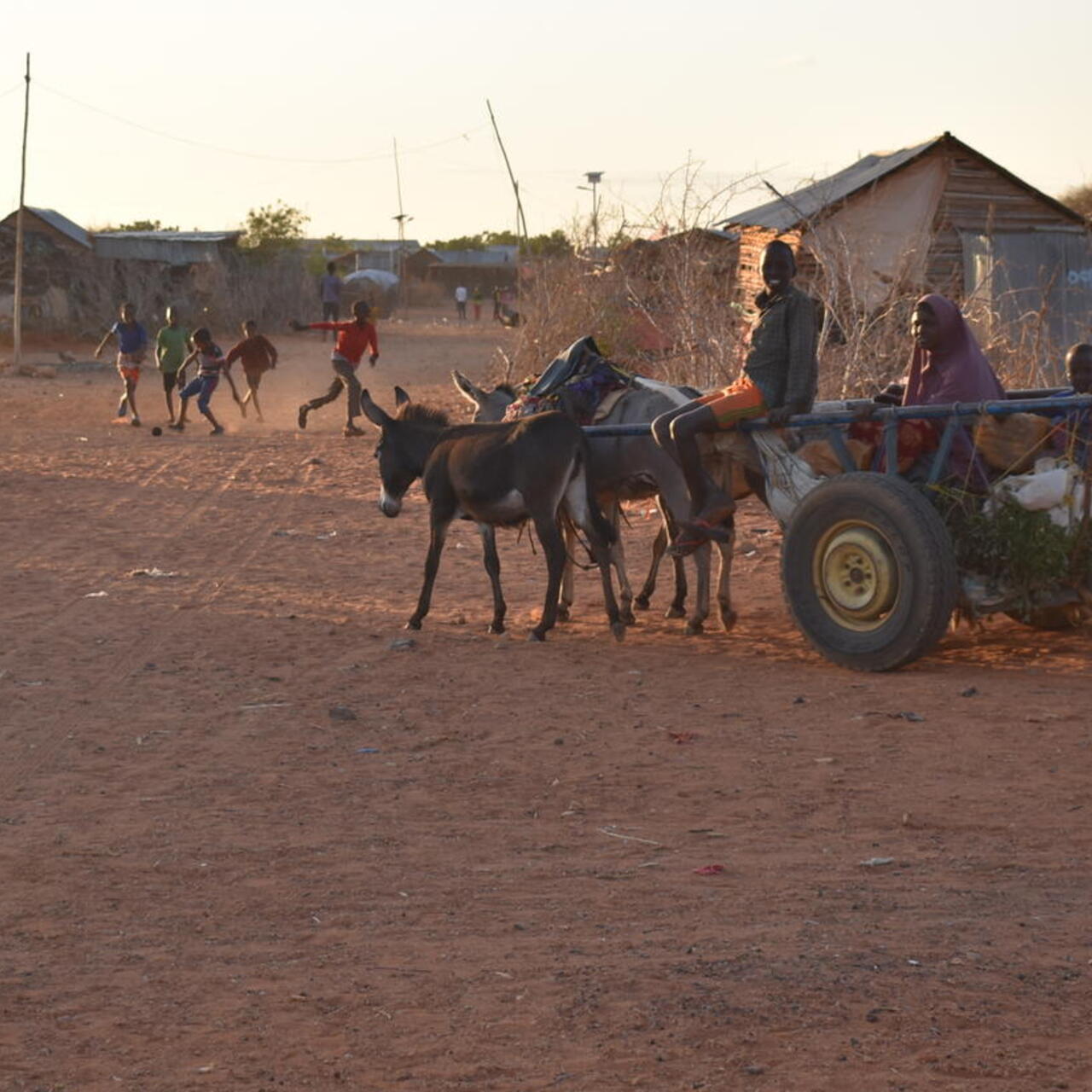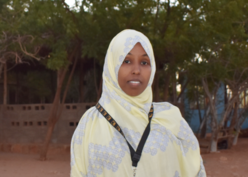“When I first started my job, community leaders didn’t want to listen to what I had to say. They thought I was too young and didn’t take me seriously,” 27-year-old Ifrah explains.
When Ifrah began working for the IRC in southern Ethiopia as a Women’s Protection and Empowerment Program Officer, she faced discrimination—but she soon turned that around.
“Now, these community leaders are my friends,” she says with a smile.
It’s this determination, combined with a deep compassion for the women and girls that she helps, that make her so good at her job. Ifrah’s days start at 6am. She’s at the office by 7.00am. By 8.00am Ifrah arrives at the Wellness Center in Haloweyn refugee camp, which is supported by Irish Aid. Here she is ready to provide vital support to women and girls, including those who have experienced violence and abuse.
Ifrah is passionate about giving women the opportunity to thrive. Protecting them from violence is absolutely vital to ensuring they can achieve their dreams.
Photo: IRC
“My job is mainly encouraging and counseling women and girls. The sessions are very important to them as they help them heal from violence and see a better future for themselves,” Ifrah explains. “I also help to create social networks between them so that they can trust and support one another.”
Over 50,000 refugees have fled to Haloweyn camp, many escaping conflict and famine in Somalia. But tragically, on arriving in Ethiopia to find safety, many women and girls are subject to continued violence in their new homes in the camp.
“The most common issue that I see is domestic violence,” Ifrah explains. “Women come to the center after they’ve been physically assaulted by their husbands and I offer them support.” The center also offers a safe space for women and girls to meet, interact, learn and empower themselves.
“Overall, in the last three or four years, the attitude of men has improved—but still, we have men in the community that haven’t changed their views. I hear that some men in the market or social gatherings talk about their wives coming to the Wellness Center and how they are not happy about it. We have to work with men to be accountable to women and girls and take action on the prevention of violence.”
As well as facing violence, women living in the camp also lack opportunities to find work. As Ifrah explains, this can be a vicious cycle: “If they do not have skills training and support, it is hard for them to make money, support themselves and their families.” Ifrah is proud of the work she does to provide women with training in skills for jobs.
30-year-old Maryam* is just one of the many women who Ifrah has supported with both emotional support and skills. “I first came in contact with the IRC last year after I was physically assaulted by my neighbour,” she explains. “He was insulting my daughter and when I tried to come to her defense, he physically assaulted both of us. I spent the whole night crying and in the morning I came to the IRC. Ifrah provided me with counseling and made me feel better and helped me to see a better future for myself. She was very kind and understanding from the start.”
Maryam got referrals to report the issue to relevant authorities, and since then the perpetrator has stopped being abusive towards herself and her family. Now she’s able to look towards the future. “I am hoping for a better life for me and my children—I’m a widow and didn’t go to school growing up. I want my children to be educated and empowered. I want to continue working with my skills as a hairdresser and pass those onto other women so that they can rely on themselves.”
It’s these kind of stories that give Ifrah her drive. “The women and girls I work with inspire me. They go through so much in their lives, and are brave enough to report their cases and get justice. One of my best days at work was when a man who raped a 14-year-old girl got arrested, was charged and sentenced to prison. The girl came to us first, we helped her with health and legal referrals. I was happy to see the girl get justice.”
To do this incredible work, Ifrah has to make personal sacrifices and must work away from her family. “It gives me great satisfaction to see women’s lives changing because of our work, but I do miss my family. My mother started looking after my baby when she was seven months old—I try to visit them every weekend, but it’s only for half a day.”
Nevertheless, when she’s asked what her advice would be to other women thinking of getting a job in her field, she’s very clear: “Go for it! It is really fulfilling to work as a humanitarian who is supporting other people to overcome challenges and thrive.”
Through the support of Irish Aid, the International Rescue Committee is working to protect and support survivors of gender-based violence in crises around the world.
*For protection reasons the name of this client has been changed.
This story was first published by IRC Europe.

